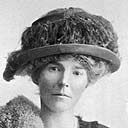

She climbed mountains in Switzerland, met tribal communities in the desert, and learnt Arabic, Persian, French, and German. "It was boring, tedious, and dull-she wanted more out of life."Īnd she did: Bell spent the next decade travelling the world. "It was Romantic and she was getting away from this very inward-looking, stuffy society that her and her family were a part of," says Wallach.

And so began a life of adventure and freedom from the world she'd grown up in. In 1892 Bell left Oxford and went to Tehran, where her uncle Sir Frank Lascelles was the British Minister. She found it distasteful, the way that they went about it." "Did she believe the suffragettes were doing a good job? No, she felt that they were too strident and too violent. "She was very much her own person," explains Wallach. And she certainly didn't let it rule her political views-so much so that she openly campaigned against women's suffrage. Photo courtesy of Verve Pictures via Gertrude Bell Archive, Newcastle UniversityĮven then, Bell didn't let the fact that she was a woman define her. "She was really excluded from some of the primary source material." "There were times when she was clearly in the minutes of meetings, and then in the memoirs of her male colleagues everyone else would be mentioned-but not her," says Oelbaum.

When they moved from her correspondence to other sources, they were amazed to discover how little her contemporaries had written about their female colleague. Oelbaum and Krayenbühl began their own research with the 1,600 letters written by Bell now archived at Newcastle University. Read more: America's Scandalous, Psychic, Forgotten First Female Presidential Candidatel Just going in there and destroying that society." "It's a mess and she would have looked at what the US and Britain did and have been appalled at what happened. I think she'd be pulling her hair out," says Janet. She has similar sentiments about Bell and modern Iraq. "She was enormously optimistic and she really poured her heart and soul into Iraq, into establishing a stable country."Īnother fan is author Janet Wallach, who wrote one of the first biographies about Bell titled Desert Queen: The Extraordinary Life of Gertrude Bell: Adventurer, Adviser to Kings, Ally of Lawrence of Arabia. What would Bell, who was famed for her fondness of the people she met and worked with in the Middle East, feel about this legacy? "I think she would be devastated," says Zeva Oelbaum, who's co-directed a new film called Letters To Baghdad: The Untold Story of Gertrude Bell and Iraq with Sabine Krayenbühl.


 0 kommentar(er)
0 kommentar(er)
